By Amal Surmawala
Click, click, click.
The sound of plastic snapping into place bounced off the walls of the otherwise quiet classroom. A group of “Bari Saathis” in our Seekho Sikhao Saathi programme with 20 FDE schools sat in a semi-circle, brows furrowed in concentration as they carefully pieced together bits of a creative play kit. Toyi has long been a staple at Cities for Children—used as a fun icebreaker and as a tool for prompting deeper conversations.
As they returned to schools and restarted programme sessions for younger children, this was the first of a series of coaching sessions planned specifically for the older girls who are emerging as education champions in their communities, to intentionally build socioemotional skills such as confidence, communication and creative agency.
The day’s activity was to create a superhero, prompting reflection on what qualities and characteristics they aspired to emulate. Ultimately, the exercise pointed to a broader yet more personal question: what are the problems they seek to solve in the world around them and how do they go about doing so?
Caped Creativity – Superhero Stories
While it took some time to express themselves, Baray Saathis allowed their imaginations to take hold and came up with fascinating superpowers. One superhero had the power to repair everything and fix things inside the house and at school, while another was super strong and helped children lift their bags. Deeply concerned about everyday struggles, their powers were designed to help people they know and love, from parents and siblings to their peers and teachers at school.

Sometimes, superhero powers were more comic book-esque, with superheroes defeating ‘bad guys’ in their neighbourhoods. Others strategically used features with creativity and an eye for detail. One Bari Saathi, for example, created a superhero with three legs so it could dance toward people in trouble—bringing them joy even in dark times. Another Bari Saathi thought long and hard about what features her superhero would need to help those around her, and gave her creation a big mouth, one that could help reason with and persuade evildoers to mend their ways.

Other creations hit closer to home. One Bari Saathi modelled her superhero after her mother, with legs and hands that she uses to walk toward people and help them. Meanwhile, a Bari Saathi at the same school chose her father as inspiration – using the small hand-shaped pieces to make an image of him with hands extended. She explained that, despite the fact that none of the other women in their family worked, he supported her dream of becoming a doctor. The kindness and strength of parents, siblings, relatives and teachers were the foundation of what they hoped their superheroes could be.

Cleverly blending their observations of surrounding creatures with their personal aspirations, Bari Saathis displayed both care and creativity. A spider with many legs was able to help multiple people at once. A talking crab, who sought to join the army, was able to expertly copy the movements of its superiors.

Stepping Forward with Care
The thoughtful creations and heartwarming narratives gave their programme officers insight into the values they held dear (kindness, empathy, etc.), as well as who in their lives were making the greatest impact on them. The fascinating symbolism of their creations, with their big mouths and multiple limbs, highlighted how they had begun to think of the tools they would need—what skills/limbs would be necessary—to help their communities and how. All-in-all, the Toyi kit opened the door to both a joyful session and plenty of reflection on the kind of people the girls would like to become.
Over several iterations of Seekho Sikhao, we have identified the domains of Socioemotional Learning (SEL) that we want to work on with intention, and over the course of the next few sessions we will be working to support these girls to set their goals and begin to think about facing challenges with resilience. Exercises like this help build confidence, communication, and self-awareness—skills that are necessary for them to thrive in the school system and beyond it.
